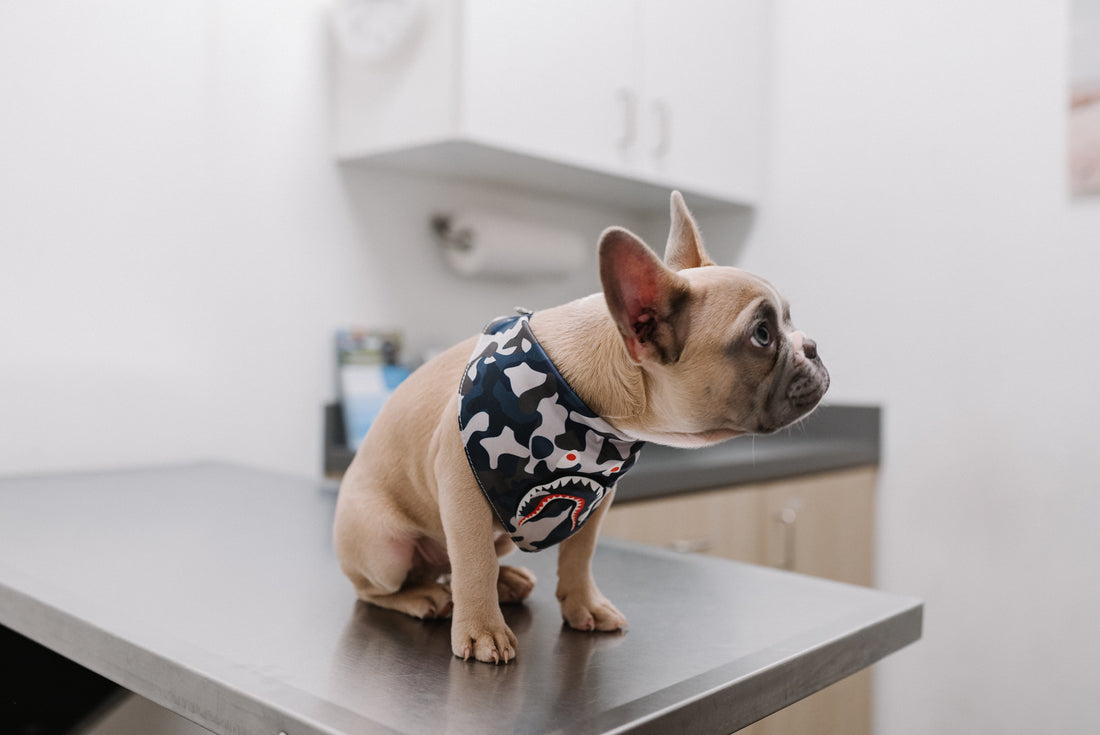Dogs with short legs and long backs often experience chronic physical issues that can be lifelong, debilitating, and even life-threatening.
Whether due to an acute injury, or minor injuries from repetitive movements, these dogs can become predisposed to bulging and rupturing discs along the spinal cord, a condition known as IVDD.
IVDD (Intervertebral Disk Disease) is a degenerative spinal disorder commonly found in dog breeds such as Dachshunds, Corgis, Basset Hounds, French Bulldogs, along with many mix breed dogs.

Why do dogs with this body type experience more issues and injuries?
That answer is simple. For example, when a dog jumps down from a couch, their front legs act as shock absorbers. So, understandably, a dog with long legs has a much shorter distance from the couch to the floor, while a short-legged dog, jumping from the same height, has a much further distance, thus creating far more force upon landing. And it is this force that causes the discs along the spine to compress.
Many people are surprised to learn that something as simple as letting your dog jump on and off the couch or bed can cause very serious physical issues. Even more surprising, it can happen quickly, meaning not necessarily from years of repetition, but simply from just one bad landing.
Unfortunately, by the time most people realize there’s a problem, their dog is already experiencing pain and mobility issues, making treatment and recovery much more difficult.
Because of the immense challenges and debilitating pain, a condition like this can cause, it is imperative that dog owners be proactive and take steps to reduce risks BEFORE injury occurs.
As is often the case in life, hindsight is 20/20, and we typically do not jump into action until we experience something personally.
We are all guilty of this at times, but with this disease, ignoring important preventative measures can result in serious repercussions for our dogs, including chronic debilitating pain, paralysis, loss of mobility and bowel function, and even death.
While there are treatment options, they are very costly, requiring the expertise of a neurologist or veterinary specialist, and even if treatment is successful, rehabilitation and recovery time is often lengthy and difficult.
How to Prevent Spine Injuries in Your Dog
Maintaining A Healthy Weight
Maintaining a healthy weight is incredibly important, not only because excess weight can lead to injury, but it can also reduce your dog’s energy level and desire to be active. Keeping your dog active at a proper level for their age will help to prevent joint stiffness.
No Jumping! Ever!
Whether it’s up on the bed or couch, or into the car, dogs prone to back problems should not be allowed to jump up on or down from anything.
Using Ramps and Stairs
Thankfully, there are many options available to help your dog gain access to your bed, couch, or car. Ramps and stairs are available in many different sizes and inclines.

Supplement Support
Because the owner and founder of Under the Weather has a dog with IVDD, she is passionate about educating pet parents about the disease. Her IVDD dog, Henry, was also the motivation and inspiration for developing a supplement specifically for Disc and Spine support.

Disc and Spine Chews for Dogs were developed specifically to provide back and neck support by combining beneficial supplements and vitamins essential for normal spine and disc function.
The combination of ingredients in these chews work together to reduce inflammation while promoting healthy connective tissues and nerve function needed for spine stability and mobility.
Glucosamine helps support healthy development of cartilage to slow joint and disc deterioration
Ascorbic acid (Vitamin C) is incredibly instrumental in restoring and repairing body tissues
MSM provides a natural anti-inflammatory to reduce swelling of discs and joints
Chondroitin helps to reduce stiffness and pain
Turmeric fights inflammation to improve circulation and boost immunity
L-Taurine, an amino acid found in the spinal cord, can help support nerve growth
In writing this blog, we hope to raise awareness for pet owners about the high risk for inherent spine injuries and IVDD in dogs with a long back and short legs, but also how taking easy to implement precautions can provide a much better chance of avoiding any potential future problems.
Products related to this article:
Every Sale Supports a Shelter Pet. Learn More.
Created in Vermont. Learn More.
If you suspect your pet is sick, call your vet immediately. For health-related questions, always consult your veterinarian, as they have examined your pet, know the pet's health history, and can make the best recommendations for your pet.




